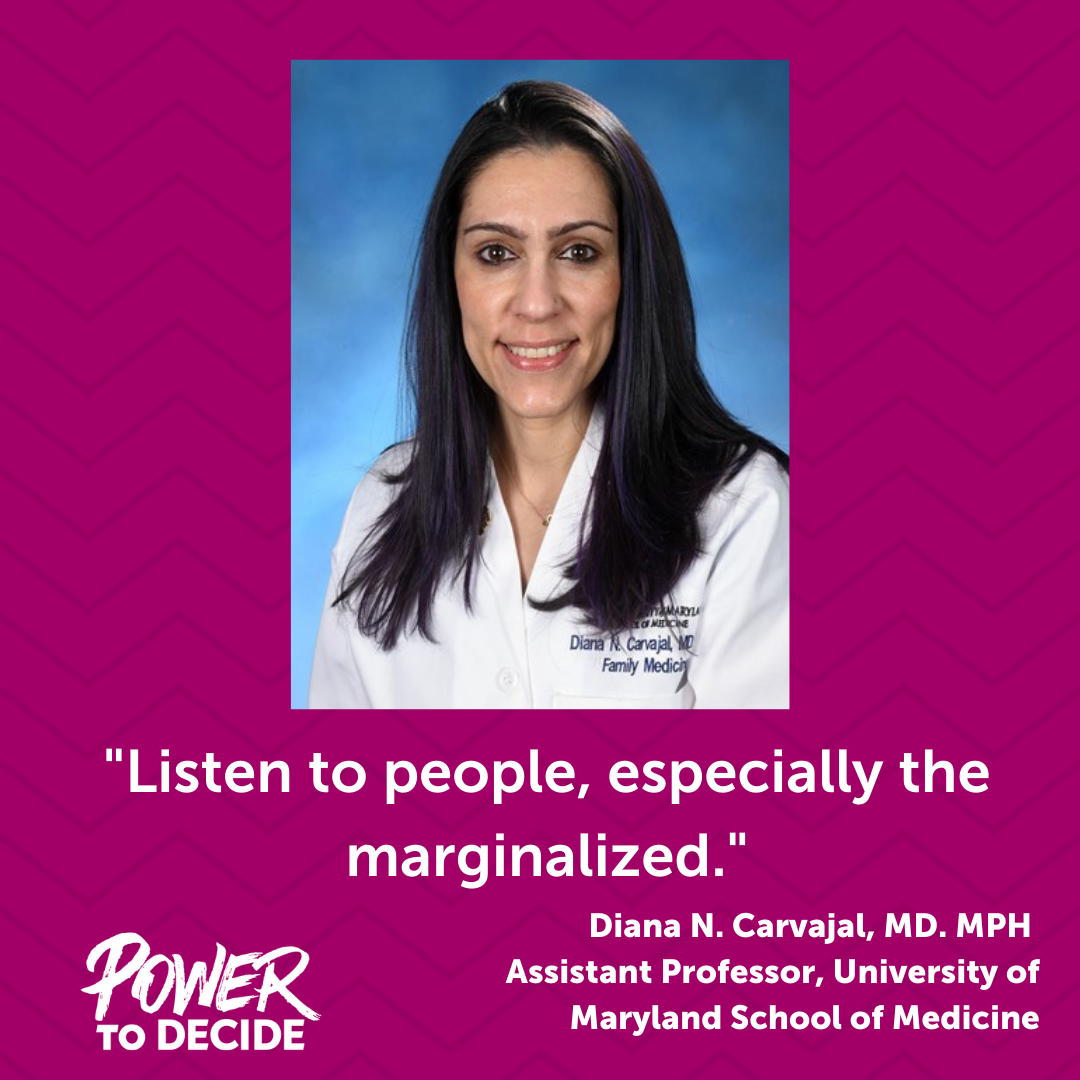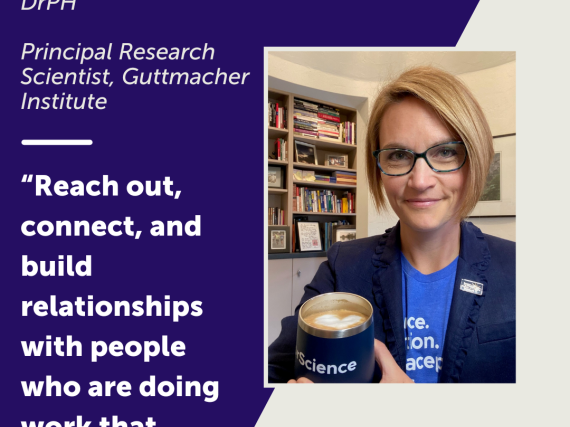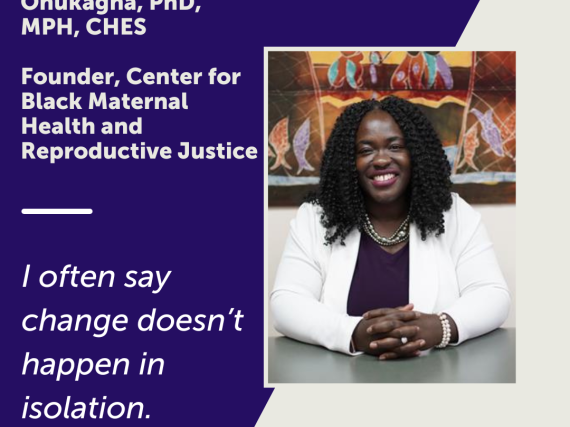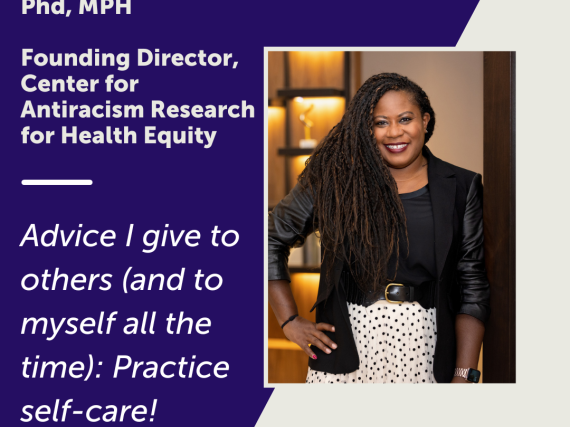February 2022 Power Player
At Power to Decide, we’re committed to uplifting the many individuals on the ground doing the work that matters most. Each month we highlight an individual who is championing the effort to support young people’s reproductive well-being. Check out this month's Power Player profile.
Diana N. Carvajal, MD. MPH
Assistant Professor, Director of Reproductive Health Education in Family Medicine (RHEDI), Co-Director, Research Section, Department of Family and Community Medicine at University of Maryland School of Medicine and Director of Diversity, Equity, Inclusion, Antiracism and Strategic Planning, RHEDI, Montefiore Medical Center/Albert Einstein College of Medicine
What work have you done to ensure that all people have the information and access they need to make decisions that align with their intentions and improve their reproductive well-being?
I think this might sound pretty simplistic and potentially, obvious, but my general approach is to just let folks tell me what they need and want. I ensure access to information by giving folks what they tell me they want.
Aside from this, I spend much of my work time doing clinical research that tries to understand ways that clinicians can best support their patients in their sexual and reproductive health decisions, which I think is one of the easiest ways we can help folks achieve well-being. My research tries to use a lens of social justice, human rights, reproductive justice, and intersectionality—all concepts and theories brought forth by scholars and activists who have been doing this work long before I have. This research is important to me but only because it is grounded in the clinical work (interaction with patients) and teaching I do. Clinical interactions fuel my research; communities fuel my research and both in turn shape how I care for patients and how I teach learners to do so as well. It’s all an interconnected web of work, and each element is deeply embedded in the other and only subsists because of the others.
How did you get started in your field? What is your driving force?
I’ve always been interested in sexual and reproductive health (SRH) as a person who identifies as a cisgender Latina, and this work fit perfectly into my chose specialty of Family Medicine where we take care of folks from birth to death within the context of their families and their communities. It has always made sense to me that SRH is at the core of well-being for almost everyone, their families, and their communities.
My driving force is a sense of urgency for justice.
When I decided to become a doctor, I thought of being a health care provider as a very altruistic thing. I somehow thought it was about me because I just wanted to help people; I wanted to heal them and make their lives better. But as I have personally evolved, learned, and listened in this work, I realize that my driving force for this work is a deeply rooted in a sense of needing justice so urgently that it’s tough not to be driven by it. As we continue to be reminded of the grave social-political injustices that exist in America and globally, I find such an urgency in providing the SRH that all people want and need as a means to begin to achieve equity and justice for all.
What advice would you give to someone looking to effect change in the field that you currently work in?
Listen to people, especially the marginalized. Hear their lived experiences; these inform their wants and needs. People will tell you what they want and need if you listen long enough to actually hear them.
Also, do the work it takes to know the current and historical context in which folks live and operate. Understand the longstanding historical truth of injustice and oppression in America that for hundreds of years has policed, devalued, and brutalized the bodies and lives of marginalized groups. What do I mean by that? It means reading about history that you might never have known or learned about; it means listening not just to scholars, advocates, and colleagues of color, who are LGBTQ+, are immigrants, and/or otherwise marginalized; it means listening to your patients and actually hearing them so that you can respond accordingly.
Why should someone care about ensuring that all people—regardless of who they are or where they live—have the information and access they need to live their best life?
It’s a matter of equity and justice. If you care about peoples’ wellbeing and health, then you should care that everyone gets equitable support and access to the information and healthcare they want and deserve. But if you wish for justice, it’s more than just paying lip-service to the work. It’s about trying to live out that wish in your day-to-day work.



